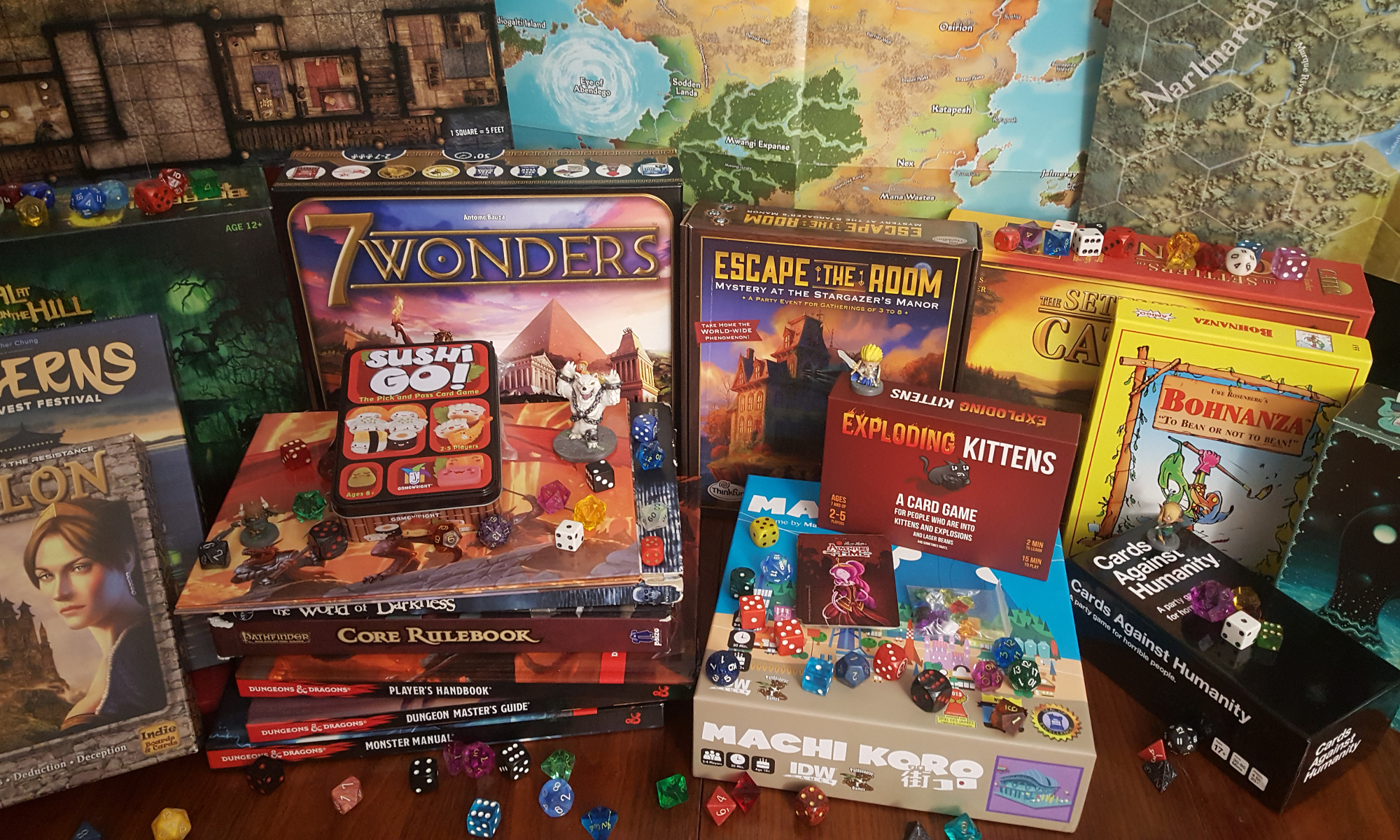Today, we talk about Sentinels of the Multiverse by Greater Than Games, one of our favorite co-op card game experiences!
Sentinels of the Multiverse is an homage to comic books, which I only discussed very briefly in this episode. The comic books of the 1930’s and 1940’s were very different from those of the 1950’s and beyond, and I’d like to take a moment to run through those.
The Golden Age was roughly the 1930’s to 1950’s. During the perilous times of World War II, stories of amazing individuals saving the world were all the rage, and everyone loved the escapist fantasy of Captain America punching out ol’ Hitler and incredibly racist Japanese and Italian caricatures. After the war ended, everyone was sick of that, so the stories turned to equally gritty but more domestic fare: tales of criminal exploits, smuggling, human trafficking and other dark and deeply violent material. Horror comics were all the rage.
A moral panic was due, of course, and in the 1950’s fake research was produced to tie comic books and juvenile delinquency (complete fabrications) and the Comics Code Authority was created in an attempt to prevent the U.S. government from directly restricting comic books, because that sort of thing is as American as apple pie, apparently. Thus, the Silver Age of comic books was born, an era where, increasingly, authors had to get “creative” with their storytelling. Some were able to write traditional comic book stories that avoided all the taboo topics (such as police dying, untrustworthy authority figures, and sex outside of marriage), while others went full bizarro and just wrote stories where Superman adopted Jimmy Olsen or had Superman and Batman get inflated like blimps. It was a weird time, but also a time when it was more important than ever to emphasize the nature and personalities of the superheroes.
In the 1970’s the government wanted to get a comic book made about the angers of drugs and asked Stan Lee to do it. The comic was flatly rejected by the Comics Code and the government was like, “That can’t be right. It’s a story about how drugs are bad and we’re the government!” and the Comic Code Authority was like, “Yeah, I think we can loosen up.” Thus, the Bronze Age was born, where writers were free to explore stories about how sometimes corrupt authority figures are defeated by the white hot justice of GOOD authority figures, sometimes drugs happen because they’re bad and sometimes superheroes make whoopie without a wedding proposal in tasteful settings.
And once they realized they could get away with it, because people had real issues to worry about like huge influxes of drugs from Central America and an economic recession and stagnating wages (hoo-boy, they didn’t know nothin’ yet!), comic book writers decided to make everything all edgy and started the Iron Age (sometimes called The Dark Age by people who hate themes). Along with that, they basically let Alan Moore get his stuff all over everything with Batgirl getting shot in the spine and a playful prankster war criminal falling off a building and everything Superman knows and loves being destroyed and Radioactive Man a heroin addicted Jazz critic who isn’t even radioactive. Every writer wanted to be like Alan Moore – except they wanted to make money doing it!
And those narratives are the ones that had the most impact, because that’s when everything freaking changed. Suddenly, superheroes were real dudes with real dude problems. They didn’t always come on top. Things didn’t always go back to the status quo ante bellum. The bad things weren’t just “imaginary stories” (because the other stories were TOTALLY REAL, you know). That’s what we mostly remember superheroes for, and that’s what endures in the legacy of superhero comics.
Now we’re in the Modern Age (or Platinum Age if you think it’s good, in which case “you’re wrong, go home, you’re drunk!”) where comic books don’t know how to be original, so they just keep reinventing the same five or six superheroes over and over and hope that we still care, because we totally do. Seriously, they can reboot Batman and Spiderman every two or three weeks and we’ll eat that up because that’s just how we roll! Also, now everyone knows who Deadpool is, so he’s not a neat inside joke anymore, so what do we have left?
A number of tools and fan expansions were mentioned during the course of this podcast:
One that many players may find useful, is the difficulty calculator, which lets you figure out just what you’re in for if you don’t want to be surprised. I, for one, enjoy discovering that my team up against insurmountable odds the hard way, but this is great for the rest of you.
The Cauldron is a fan expansion, and it’s currently undergoing ongoing playtesting. It’s free (minus printing, of course), and it’s fun. There’s a pretty active fan community, which is great.
Of course, it helps to know where you can get Sentinels of the Multiverse. Because I’m sure none of you reading this know how to perform an internet search or anything. You need a blog to tell you that. Amazon is hard. I’m helping.
There is also a companion app for Sentinels of the Multiverse available on Android. It costs money, though, which is kind of a turn off. You can also get the game as an app. That costs money too, but it’s a whole game, not just a companion app.

